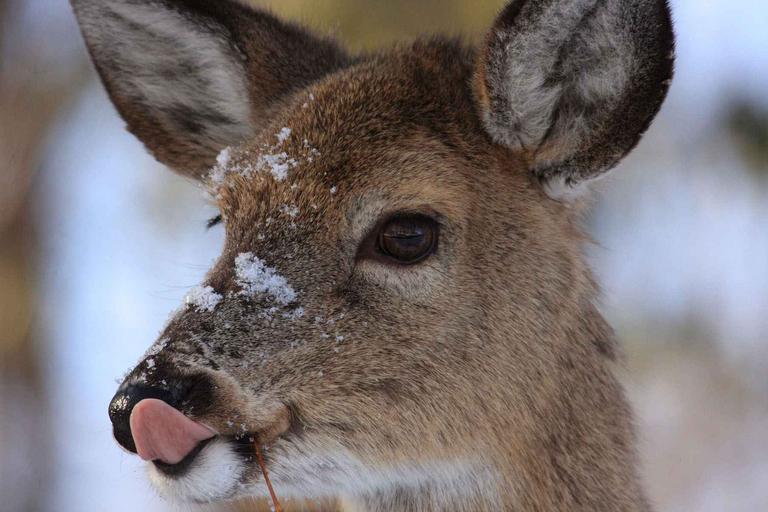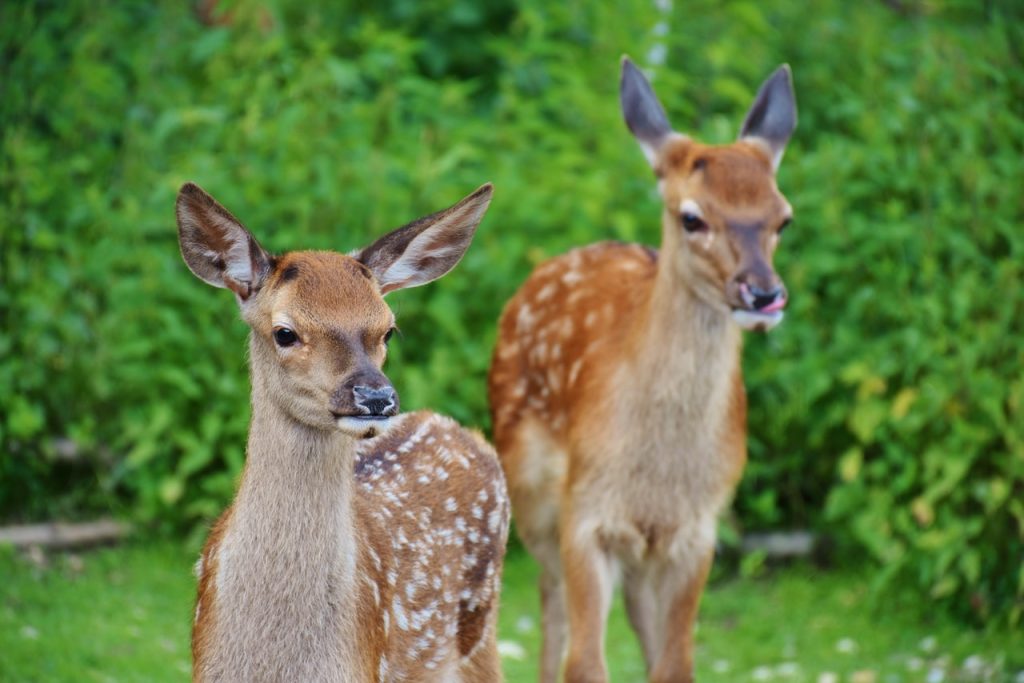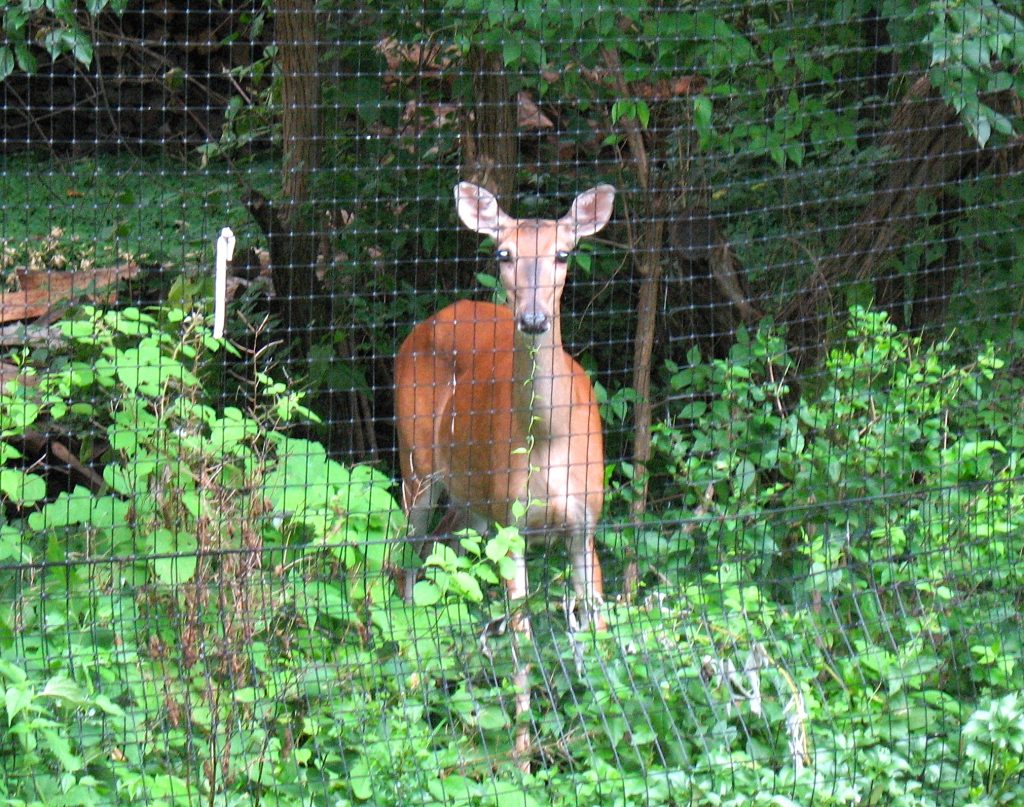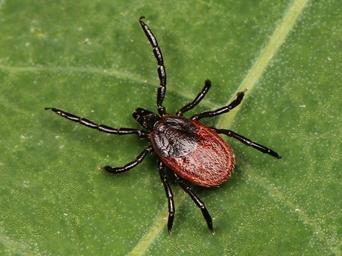
The bane of every gardener is a herd of deer bent on eating your prize native plants. It’s so discouraging to have all that labor and money you invested eaten overnight! How can you outsmart Bambi and protect your garden? Read on, friends.

Yes, I know, deer are beautiful creatures and fawns are adorable, but they are also very destructive. Deer can devastate not only your garden, but also forests by browsing tree seedlings, shrubs, and wildflowers beyond their capacity to reproduce. This means deer need to be managed to protect properties, parks and forests. Pennsylvania Department of Conservation and Natural Resources (DCNR) Deer Management Program works to ensure healthy state forests and parks by managing deer populations.
But let’s get back to our own properties. Our deer population has skyrocketed because deer have no natural predators in our area. This means they are exhausting their food supply. Bad news for you, because deer will eat any plant they can find to survive–including everything in your beautiful and carefully chosen straight native plants garden.
What’s a dedicated gardener to do? We’re not going to give up gardening, are we? There are a few options: deterrents, fencing and deer resistant plants.
Deer Deterrents and Fencing
Sprays such as Liquid Fence will work, but need to be re-sprayed regularly, especially after a rain. And deer need to taste test a sprayed plant to learn not to eat such a disgusting taste. So if you don’t mind spraying constantly and seeing a few flowers bitten off and spit out on the ground, this is an option.
DO NOT waste your time and money on all the “clever” critter controls, such as human hair, soap, noise makers, pinwheels, motion activated water sprayers, etc. I have tried them all and they don’t work.

Only an eight foot high deer fence will keep deer from eating your plants, which is what I finally resorted to after trying all other options. If you go with a deer fence, don’t forget it will need to be maintained.
Deer Resistant Native Plants
The sad truth is deer will eat anything if they are hungry. They have eaten monkshood in my garden, even though it’s a poisonous plant. They have also tried my Liatris (Gayfeather) and spit it out because they didn’t like it. UGH. However, there are some native plants they tend to avoid. Here’s a short list:
- Black Cohosh (Actaea racemosa, Zones 3-8, perennial, partial to full shade)
- Wild Columbine (Aquilegia canadensis, Zones 3-8, perennial, full to partial shade)
- Wild Ginger (Asarum canadense, Zones 4-6, perennial, partial to full shade)
- Butterfly Milkweed (Asclepias tuberosa, Zones 3-9, perennial, full sun)
- Pennsylvania Sedge (Carex pensylvanica, Zones 4-8, grass, full to partial shade)
- Summersweet (Clethra alnifolia, Zones 3-9, shrub, full sun to partial shade)
- Sweetfern (Comptonia peregrina, Zones 2-6, shrub, full sun to partial shade)
- Red Twig Dogwood (Cornus sericea, Zones 2-8, shrub, full sun to partial shade)
- Hay-scented Fern (Dennstaedtia punctilobula, Zones 3-8, perennial, full to partial shade)
- Wild Geranium (Geranium maculatum, Zones 3-8, perennial, full sun to partial shade)
- Winterberry (Ilex verticillata, Zones 3-9, shrub, full sun to partial shade)
- Switchgrass (Panicum virgatum, Zones 4-9, grass, full sun)
- Little Bluestem (Schizachyrium scoparium, Zones 3-9, grass, full sun)
- Foamflower (Tiarella cordifolia, Zones 3-8, perennial, partial to full shade)
- Spicebush (Lindera Benzoin, Zones 4-9, shrub, full sun to partial shade)
You can find a comprehensive list of deer resistant plants as well as native deer favorites on University of Maryland’s website.
What You Can Do
- Deer do not like herbs such as lavender, rosemary, thyme, oregano, and chives. Grow them around and near plants they feed on.
- Protect every new plant with netting for at least a few months. New growth is tender and has not developed a strong odor or other qualities that would help protect it.
- Choose plants that are grey, prickly, bitter, spicy, toxic, hairy, coarse, aromatic or have a milky sap.
- Ask your township to cull deer once a year, as Rose Valley Borough does.
- Protect yourself against deer ticks that cause Lyme disease when you are in your garden. (another reason to cull deer)
- Install a deer fence
- Use deer resistant native plants.
I hope this information helps to protect your garden and saves you the angst of watching deer eat your native plants.


Leave a Reply